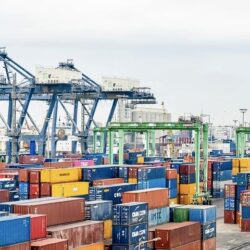Brexit uncertainty heightens need for flexible logistics

Now that the Brexit deadline has been moved back to the end of October this year, the focus is on reassessing the balance of risk to supply chains, according to Steve Purvis, Operations Director at Bis Henderson Space. Companies face the challenge of estimating the levels of inventory needed to secure supply, calculating the costs of extending contracts and dealing with the potential horrors of trying to find well-located warehouse space.
According to a survey conducted by the United Kingdom Warehousing Association and reported in UK newspaper The Guardian in January, 85% of members have received Brexit-related inquiries, yet around 75% have been unable to take on more business from new customers. Meanwhile, storage costs had soared by up to 25% over the preceding three months as many companies rushed to secure space in the run-up to the original deadline of 29 March 2019.
“By committing to a plan in advance of that date, those companies may have had some additional costs on storage and inventory to take into account. However, they have been able to secure their supply chains and provide tangible reassurances to their customers on future service performance,” states Purvis. “But now that the Brexit deadline has shifted to the autumn, the period of uncertainty has lengthened and many of those businesses that entered into a 12-month contract in March – to cover any transitional disruptions – will now have to weigh up whether or not to extend their contracts by a further six months or longer.”
Big seasonal events
“Those organizations that held back on committing to Brexit plans might feel vindicated by their decision and may be counting some interim cost savings. However, as the autumn deadline approaches things could become a little scary – particularly so, as the new exit date coincides with the big seasonal events such as Black Friday and the ramp-up to Christmas,” he continues.
With most of the obvious solutions for extra warehouse space already taken or being priced at premium rates, companies need to look for alternatives. One way is to collaborate with businesses that have underutilized warehouse capacity and are willing to reach a flexible agreement in order to monetize their resources, such as through specialist service providers like Bis Henderson Space. This can help businesses to confidently prepare for an autumn Brexit. “But for some more forward-thinking organizations, flexible storage is part of a bigger plan, beyond the immediate concerns of Brexit,” adds Purvis.
“There are businesses that are winning out by taking a strategic approach to utilizing flexible storage space on a planned, ongoing and coordinated basis, creating a continuous dynamic buffer that flexes with the business.” Instead of only finding more space as a contingency, enlightened businesses are analysing and then segmenting steady inventory from unpredictable, higher-risk stock and factoring it into their supply chain models. “Rather than maintaining a steady-state solution on 95% of peak inventory with 5% held in flexible storage, forward-thinking businesses are adjusting those levels by a few percentage points to make viable a more flexible, lower-risk solution where short-term storage can be deployed when and where needed,” he concludes.










